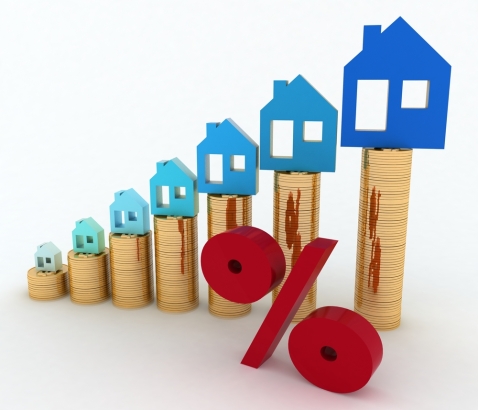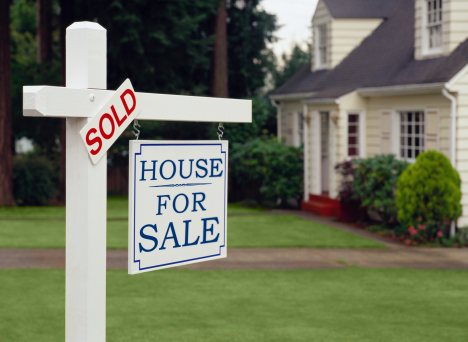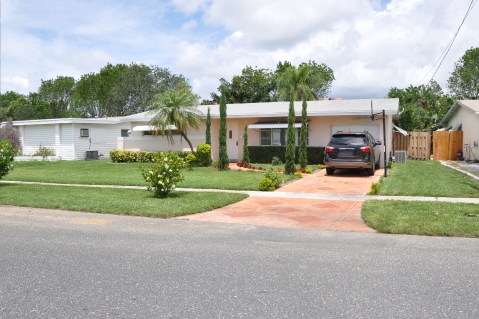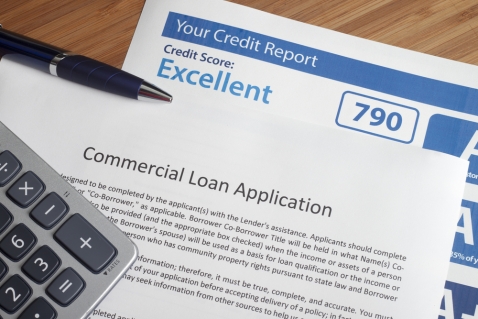Prices expected to maintain growth, says Absa
 Building costs are not rising as fast as they were a year ago, but it is still more than 30% more expensive to buy a newly-built house than a similar pre-owned house, according to the latest Absa Housing Review.
Building costs are not rising as fast as they were a year ago, but it is still more than 30% more expensive to buy a newly-built house than a similar pre-owned house, according to the latest Absa Housing Review.
Consequently, the strong demand currently evident in the real estate market can be expected to remain focused on pre-owned homes this year, and to exert upward pressure on prices in this sector.
As it is, the Absa report shows, real (after inflation) growth was experienced in every housing category last year and, barring economic disaster, can be expected to continue this year and next, although it is unlikely to exceed single digits.
The Absa figures show that the average price for pre-owned homes in the affordable category (up to 79sqm big and priced at up to R545 000) grew by 1,6% in real terms in the last quarter of 2014, while the average price of small homes (80sqm to 140sqm) grew by 3,5%.
Medium-sized homes (140sqm to 220sqm) recorded a fourth quarter average price increase of 1,3% in real terms, and the average price of large homes (220sqm to 400sqm) grew by 1,6%, but it was luxury homes (priced at 4m to R14,6m) that performed the best, with an average 9,7% real-term increase in price.
Absa says it also expects to see an increase in the rate of growth in outstanding mortgage balances this year, thanks to improvements in economic growth, employment and household income, consumer credit-risk profiles and the risk appetite of the banks.
Interest rates, it says, are not expected to rise beyond 9,5% this year, and real household disposable income is expected to rise as incomes increase and debt levels subside. The nominal wage increase in 2014 was 8,1%, which was ahead of the average inflation rate of 6,1%. According to the Bureau for Economic Research, the consumer financial vulnerability index (CFVI) shifted from 50,4% to 51,4% in the third quarter of last year, which means that consumers are less financially vulnerable now than they were a year ago.
Breaking the performance of the housing market down regionally, the Absa report reveals that house prices in the Free State achieved the highest rate of real growth last year (5,5%), which was no doubt helped by a whopping 11,3% rate of real growth in prices in the Mangaung metro.
Real house price growth reached 5,4% in the Western Cape, mostly due to an real increase of 6,8% in the Cape Town metro; while prices across Gauteng grew 3,5%, boosted by increases of 5,2% in the Tshwane metro and 4,2% in Greater Johannesburg.
The Buffalo and Nelson Mandela Bay metros did not fare as well, however, and this is reflected in a real-term decline of 1% in Eastern Cape home values.
Get bond insurance as well as HOC
 When you buy a new home, the bank will usually insist that you obtain a home owners’ insurance (HOC) policy to provide for the replacement of a property that has been damaged or destroyed by fire, flood, high wind, earthquake or other disaster.
When you buy a new home, the bank will usually insist that you obtain a home owners’ insurance (HOC) policy to provide for the replacement of a property that has been damaged or destroyed by fire, flood, high wind, earthquake or other disaster.
Such policies often also provide insurance against less serious damage resulting from burst geysers, falling trees and collapsing garden walls and they are most useful for giving you peace of mind, as a borrower, that you will not end up having to pay off a home loan on a property that has been destroyed while also trying to pay for your home to be rebuilt.
However, most lenders will be less insistent that you take out life insurance to cover the outstanding balance of your home loan and pay it off in the event of your death.
Also known as bond insurance, this can make all the difference to your family at that time by enabling them to stay on in a home that is fully paid off, and you should thus consider it very seriously.
In addition, you should think about whether you just want credit life insurance for the bond or whether you should take an additional normal life insurance policy specifically for this propose.
If you decide on the former, also called decreasing-term life insurance, the coverage decreases monthly along with the outstanding balance of your home loan, which means that once you’ve paid off the loan, the policy will lapse and there will be no pay-out.
If you take out an ordinary life insurance policy, you can specify a fixed amount that matches or exceeds the amount of your home loan, and that will go straight to your beneficiaries in the event of your death.
The benefits of this type of insurance are that the pay-out amount does not decrease in line with your home loan balance, and that your heirs can use the pay-out at their own discretion, and keep what is left if they decide to use some of it to pay off the mortgage.
Different Ways to Repay Your Mortgage (Without Earning More)

Interest is generally the biggest challenge anyone faces when paying off a home loan. Our BetterLife Home Loans CEO, Shaun Rademeyer, explains how a home loan of R800 000 at an interest rate of 9.25% can be paid off in 17 years instead of 20, and save you R178 000 (22% of your loan!), simply by adding an extra R500 a month into your bond account. At BetterLife Home Loans, we’re here to help you get the best out of your bond, so here are a few tips on how you can repay your mortgage faster.
A Comprehensive View of Your Finances
Before you even think of taking out a bond, get the rest of your finances in order. First, you need to ensure you have six-month contingency fund for emergencies in your savings account. Secondly, the more deposit you can put down on your bond from the get-go, the less interest you have to pay, so aim for a minimum of 10-20%. Thirdly, decide which of your assets are the most important – which of your investments will depreciate faster? For example: property always increases in value, whereas a car depreciates from the second it is purchased.
Split or Bi-weekly Repayment
First, check with your bank whether they charge for early payments. If they don’t, these two methods can shave years off your bond. You can pay this two ways: twice a month, or every two weeks. Twice-monthly payments mean that you’ll pay half your amount in the middle of the month, and the other half at the end of the month. This means that if your bond’s interest is calculated on a daily compounded interest basis, you’ll save quite a bit of money. The bi-weekly payments are even better. This may sound the same, but if you pay fortnightly you’ll be making 26 payments per year in contrast with 24 repayments per year on a split repayment. The bi-weekly option works even better. Here’s what you’ll save per plan on a R600 000 loan, charged at R 8.5% interest over 20 years (R5206, 94 per month):
Monthly “split” payment:
Paying R2603.47 on the 15th, and another R2603.47 again on the 30th of each month saves you approximately R50 per month over 20 years. This means you could shave two years off your bond and keep R11 948.85 in interest payments over your bond period.
Bi-weekly payment:
The bi-weekly payment is really the ideal payment. You technically pay for a 13th month, but with a steady monthly or bi-weekly income flow you generally won’t even notice. You’ll pay your R2603.47 up to 26 times per year, meaning you’ll reduce your repayment term to just shy of 17 years, and also save R127 423 in interest.
Take a loan out for longer than you need
Interest is generally the biggest income-killer on a bond. If you’re tight on cash, rather take out a slightly longer bond than you need (just in case), but then pay it off as if you’re on a shorter bond. Take this example:
A R1 000 000 bond, at 9.25% interest over 20 years tallies to a total repayment of R2 198 080, and a monthly mortgage of R9158.67. Exactly the same bond over 15 years, however, ends up as R1 852 546.12, at R10 291.92 per month. Therefore, at a difference of only R1133.25 per month, you’ll pay your house off 5 years earlier and also save R345 533.88 in interest.
Pay extra
Simply round your payment up by a ten or a hundred – you are unlikely to notice the difference, but your bond certainly will. Put any extra money you have into your bond account: investment earnings, your 13th cheque, or even an inheritance. Savings account interest rates generally stand at 6%, whereas bond interest lies between 8-10%, meaning that you’ll actually end up losing 2% of your money annually by using your savings account rather than your bond. If you’re not keen to have your money “tied up” in your bond account, speak to your agent about getting an access bond.
Access Bond
An access bond is a way of putting all your extra money into your bond account and then being able to withdraw it at any time, so it functions like a savings account. This is fantastic for you, as you’ll be able to pay off your bond much more quickly, but still be able to access your money when you need it. BetterLife Home Loans offers access bonds, under the prerequisite that you have your repayments on a debit order and that you pay above the required amount per month, although each case is treated individually.
Play with the BetterLife Home Loan Calculator and see how you can save today, or simply call one of our helpful agents. If you would like more helpful information and tips on how to make you bond work for you, follow our blog here. BetterLife Home Loans is all about giving you the best bond we possibly can.
Homeowners are better drivers
 We’ve all seen those adverts explaining why women are a better insurance risk than men and deserve lower premiums – and now it seems that homeowners do too.
We’ve all seen those adverts explaining why women are a better insurance risk than men and deserve lower premiums – and now it seems that homeowners do too.
Reviewing an accident analysis done by motor insurance comparison site Insurance.com, a recent Wall Street Journal article says insurers have believed for a long time that drivers who own their homes file fewer auto-insurance claims, on average, than those who rent – and that several companies already take this into account when calculating premiums.
However, says Des Toups, managing editor of Insurance.com, to determine whether homeowners are really less likely to file a claim than tenants, the site decided to analyse data from more than 700 000 drivers who completed an online questionnaire between January 2012 and July 2014.
And what it found, unsurprisingly, was that those most likely to file an accident claim are drivers between 18 and 24 who live with their parents. About 24% of drivers in this group had filed a claim in the past three years, compared to just under 20% of drivers in this age group who were tenants, and just under 18% of drivers in this age group who own their own homes.
The analysis also revealed that this pattern persists well into drivers’ 40s and 50s, albeit at lower levels. For instance, in the 45 to 54 aged group, just over 13% of drivers who own their own homes had filed a claim in the past three years, compared with 14% of drivers who were renting their homes.
Overall, only 14,3% of drivers who are homeowners had lodged an accident claim in the past three years versus 16,8% of drivers who are tenants and 22,2% of drivers who reside with their parents.
Toups says this confirms that there is indeed a strong correlation between homeownership and fewer claims, “and helps to explain why many consumers receive an auto insurance discount simply for owning a home, or additional reductions when they bundle their auto insurance and homeowner’s insurance policies with the same insurance carrier”.
But he does also cautions that just buying a home will not automatically make you a better driver. It is longer-term home ownership, and the responsibility and additional caution that comes with that, which appear to make the most difference to people’s driving habits and thus the likelihood of being involved in an accident.
